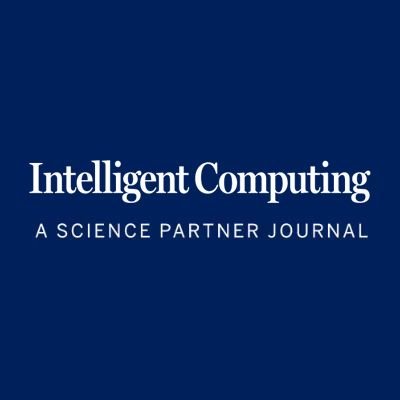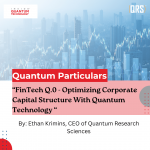Quantum News Briefs: March 28, 2024: Anna Fontcuberta i Morral is Appointed The Next EPFL President; New research area promotes both quantum computing and cognitive science; “How long before quantum computers can benefit society? That’s Google’s US$5 million question”

Quantum News Briefs: March 28, 2024:
Anna Fontcuberta i Morral is Appointed The Next EPFL President
The Swiss Federal Council has announced the appointment of Anna Fontcuberta i Morral as the next president of EPFL, set to begin her tenure on 1 January 2025. This marks a significant milestone in her illustrious career as a physicist and materials scientist. She has been with EPFL since 2008 and has held various roles, most recently as the associate vice president for centers and platforms. Her academic journey began with a Bachelor’s degree in physics from the University of Barcelona, followed by a PhD in materials science from Ecole Polytechnique in France, among other accomplishments. Fontcuberta i Morral, who was born in 1975 and holds dual Spanish and Swiss citizenship, has not only excelled in research, earning notable awards and contributing to major R&D initiatives at EPFL, but also played a pivotal role at the national level, including her involvement with the Swiss National Science Foundation. Her approach to fostering engagement within the scientific community and policymakers highlights her commitment to leveraging science and education for societal benefit. She is set to be the first woman to lead the Swiss Federal Institute of Technology, a historic achievement since its establishment in 1855.
New research area promotes both quantum computing and cognitive science

A recent review article in Intelligent Computing introduces the burgeoning field of molecular quantum computing as a promising intersection between quantum biology and cognitive science, suggesting it could revolutionize our understanding of both areas. The article posits that integrating molecular quantum computing with these fields may unlock theoretical breakthroughs, particularly by exploiting quantum degrees of freedom—essentially the capabilities of qubits in storing and processing information. This approach could shed light on complex biological phenomena and the quantum underpinnings of consciousness, which have eluded explanation by classical mechanics. The review details progress in each field and explores key concepts like orbitals, spins, and photonic states, emphasizing their role in creating quantum coherence essential for quantum computing. It also speculates on the quantum mechanics behind enzyme catalysis and photosynthesis, potentially offering new insights into cognitive processes and the quantum effects observed in biological systems. The researchers behind the review are optimistic about the future, anticipating groundbreaking science to emerge from further exploration of these interdisciplinary connections.
In Other News: National Defense article: “ALGORITHMIC WARFARE: Intelligence Community Seeking Quantum Computing Know-How”

The Intelligence Advanced Research Projects Agency (IARPA), under the Office of the Director of National Intelligence, has initiated the Entangled Logical Qubits (ELQ) program to explore the potential of advanced quantum computing, highlights a recent National Defense article. Led by program manager Michael Di Rosa, ELQ aims to overcome the inherent imperfections of qubits — the quantum equivalent of bits in classical computing, which can represent more than binary values but are prone to quickly degenerating into noise. The program focuses on error correction within quantum mechanics to maintain quantum coherence, which is essential for high-performance quantum computing systems. By achieving the entanglement of logical qubits, the program aspires to enable quantum teleportation, transferring quantum information across distances. With research contracts awarded to university teams from Harvard, ETH Zurich, the University of Innsbruck, and the University of Sydney, the four-year ELQ program expects to demonstrate a 95% success rate in teleporting four logical cardinal states. The project underscores a commitment to advancing universal fault-tolerant quantum computing, acknowledging the necessity of quantum error correction for the intelligence community’s interest in leveraging quantum computing for operations research, decision-making, and optimization. This research could significantly shape the future of quantum computing technology and its applications.
In Other News: The Conversation article: “How long before quantum computers can benefit society? That’s Google’s US$5 million question”
![]()
Google and the XPrize Foundation have initiated a US$5 million competition to foster the development of quantum computing applications that positively impact society, potentially accelerating progress toward achieving the UN Sustainable Development Goals, according to a new Conversation article. This challenge is rooted in the belief that quantum computing, leveraging principles of quantum physics for rapid calculations, could significantly outperform traditional computing in certain applications. Quantum computing distinguishes itself by utilizing qubits, which exist in a superposition state, allowing them to represent multiple states simultaneously, unlike the binary bits of classical computing. This enables the execution of multiple computational tasks simultaneously, offering a theoretical advantage over classical systems. However, actualizing this quantum advantage has proven challenging, with few algorithms to date demonstrating superior performance. The competition reflects a broader effort to translate quantum computing’s theoretical potential into real-world benefits amidst ongoing research to overcome barriers to its practical application.
Kenna Hughes-Castleberry is the Managing Editor at Inside Quantum Technology and the Science Communicator at JILA (a partnership between the University of Colorado Boulder and NIST). Her writing beats include deep tech, quantum computing, and AI. Her work has been featured in National Geographic, Scientific American, Discover Magazine, New Scientist, Ars Technica, and more.



















